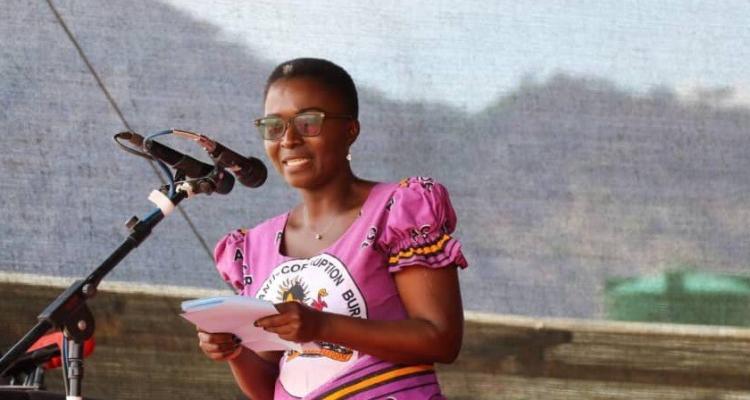
Raised in Nkula falls but coming from Nkhotakota, matriculated at Zingwangwa Secondary school and graduated with a Bachelor of Laws from Chancellor College, Ms Martha Chizuma had no iota of any hint that one day she would be the Director General of the Anti Corruption Bureau (ACB).
Many Malawians had high expectations of Martha Chizuma’s leadership as the Director General of ACB due to her impeccable and impartial performance in her previous undertaking as an Ombudsman.
As Chizuma’s contract is coming to an end in few weeks time, has she met people’s expectations of stamping out corruption without fear or favour?
In this interactive feature, the successes and shortfalls of ACB are well elucidated.
Chizuma’s strengths
During her tenure, Martha has been open in sensitising the general public on the evils of corruption.
In fact, Chizuma is comfortable to be interviewed by various journalists with an aim of informing the general public on the state of corrupt practices in Malawi.
It is even not debatable that Martha Chizuma possesses a disposition of high integrity. In most circumstances, she strives to be as honest as possible.
It is during Martha’s reign that the law was enacted to empower the Director General of ACB to prosecute corruption cases without requiring the consent of the Director of Public Prosecution.
It is envisaged that such arrangement will theoretically expedite the prosecution of corruption cases.
Martha Chizuma has exuded her determination and audacity to stamp out corruption by even arresting high profile political figures such as former Director General of ACB, Reyneck Thokozani Matemba, the current Vice President Saulos Chilima, former Inspector General of Malawi Police Services, George Kainja and some former ministers including Newton Kambala and Kezzie Msukwa.
It is during Martha Chizuma’s reign when ACB cooperated with international bodies such as the United Kingdom (UK) National Crime Agency to jointly prosecute a UK based business magnate, Zunneth Sattar. Such international cooperation needs to be applauded.
Chizuma’s shortfalls
Despite the aforementioned strides in fighting corruption, Martha Chizuma’s administration is replete with colossal controversies and anomalies.
For starters, there is a litany of overdue corruption cases growing dust in Martha’s office. Some of them are cases involving Saulos Chilima, Paul Mphwiyo, Enoch Chihana, Nicholas Dausi, George Kainja, Zuneth Sattar, Mwabi Kaluba, Reyneck Matemba, Suzi Banda and Newton Kambala. This list is not exhaustive.
According to Martha Chizuma, the delays in logically concluding corruption cases emanate from a multifaceted point of view.
Sometimes court judges are not available for such court cases, Martha Chizuma lamented. Even if such cases are tried, high profile corruption suspects hire well experienced and competent lawyers who delay the cases through some unforeseen demands.
Whatever the excuse, it is undeniable that justice delayed is justice denied. ACB must take a leading role to collaborate with the courts and other law enforcement agencies so that justice should expeditiously be seen to be done.
Furthermore, there is too much political interference in the running of ACB. One wonders why it has taken ages for ACB to come up with a formal statement over bribery allegations against the Secretary General of Malawi Congress Party (MCP), Eisenhower Mkaka. This smacks of selective justice.
Many Malawians were mesmerized as to why ACB decided to drop down charges for State residences Chief, Prince Kapondamgaga.
By reportedlyagreeing to pay back the bribery of about K70.1 million he received from Sattar, Prince obviously pleaded guilty and therefore he was supposed to face the long arm of the law.
With the foregoing, it sounds logical that Martha Chizuma is compromised. She may be paranoid because she was once arrested over her leaked audio conversation in which she accused some judges of being biased and corrupt.
Martha Chizuma may be schizophrenic because she was once fired soon after her arrest. Therefore, Martha may just want to finish off her contract amicably.
In view of selective justice and political interference, it is not surprising that there is rampant corruption in the country.
Way forward
In conclusion, it is pathetic that Malawi has lost millions of Kwachas to corruption. Indeed this stolen money could have gone a long way to improve our dilapidated road network and health facilities just to mention a few.
The fight against corruption is real and everyone is humbly requested to join the war. It is not a one-man show.
It is therefore imperative that the ACB is made independent of any political interference. Let appropriate law be enacted now towards this cause. Thereafter, ACB must report to the National Assembly.
Furthermore, Chakwera’s proposal of recruiting a foreign national as the Director General of ACB must be explored. This notion is being supported because experience has shown that Martha worked in a hostile environment due to ethnic, acquaintance and corruption network interference.
The proposal of recruiting a foreign national as the ACB director general does not imply in any way that there is no Malawian who is technically qualified for the post. It is purely based on ethical grounds.














